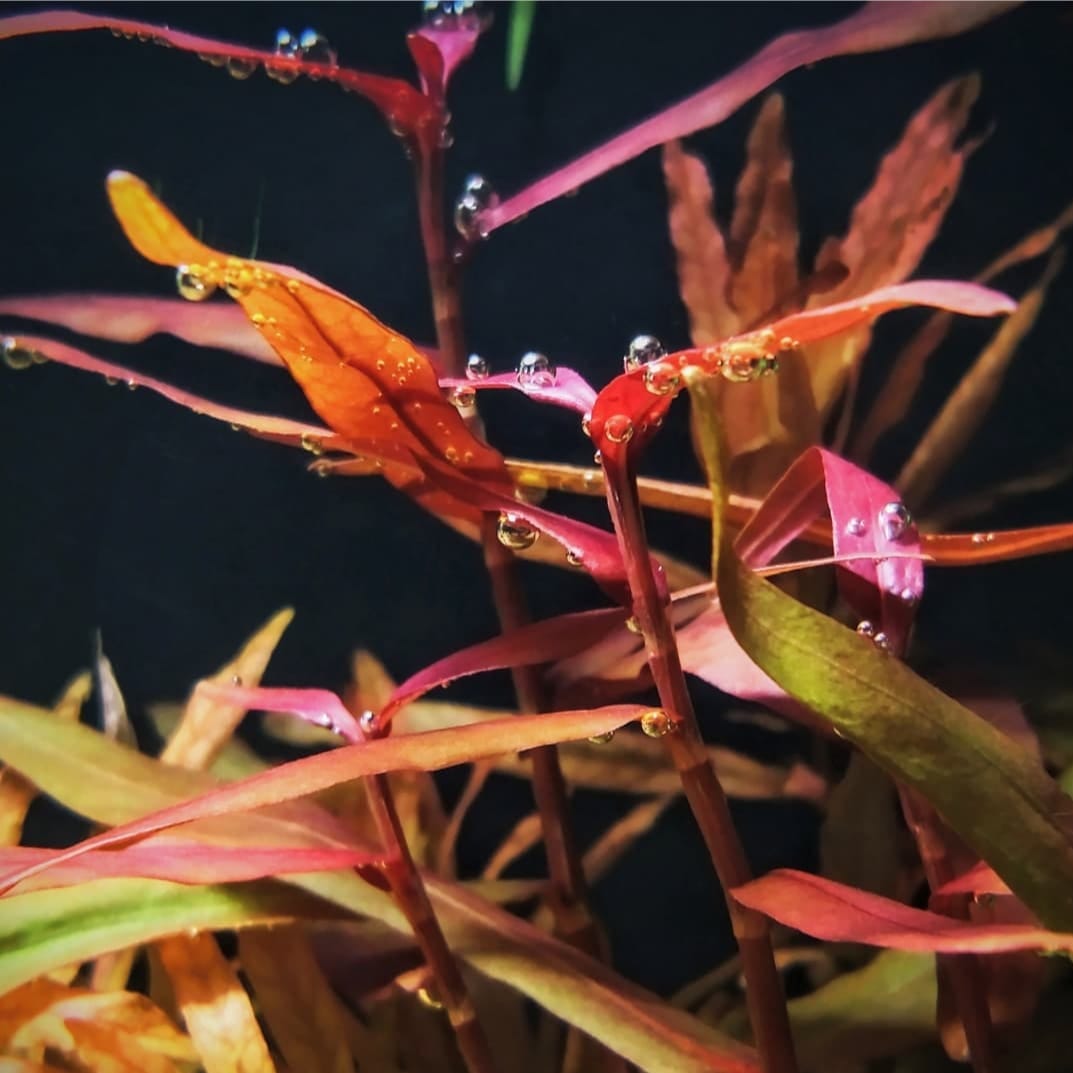- Product
- Polygonum sp. "pink"
Polygonum sp. "Pink"
Couldn't load pickup availability
Persicaria (Polygonum) sp. 'Sao Paulo' is a phantastic new aquarium plant from Brazil. At the moment, the correct species name of this knotweed is still in the dark. When kept in the right conditions, this is probably the most intensively coloured plant species currently avaiable for aquaria. It is offered by the Japanese company Rayon Vert, and it is also available among hobbyists in the USA.
Unfortunately, under the name Polygonum sp. 'Sao Paulo' there is also another plant in trade, namely the very similar P. sp. 'Kawagoeanum', and it is even questionable if true 'Sao Paulo' is available in Europe at the moment.
Thus we will list some characteristics suitable for differentiating these rather similar knotweeds in the following.
a) Persicaria (Polygonum) sp. 'Kawagoeanum':
- leaves show a red colour especially in the uppermost part of the shoot, in the lower areas they are prevalently green
- Colour: pink to orange or brick red
- the youngest leaves point upwards at an angle
- longish, almost lineal leaf form
- plant ramifies readily, lateral shoots grow at a larger angle, and the plant has an overall more bushy growth
b) Persicaria (Polygonum) sp. 'Sao Paulo':
- (under strong light) the leaves are red, more or less overall along the entire stem
- Colour: intensive magenta
- the youngest leaves curve downward
- leaf form: more or less lanceolate
- this plant always grows strictly upright, its lateral shoots are also upright and don't really grow at an angle at all
Persicaria sp. 'Sao Paulo' is no plant for low-light tanks, however, it grows exceedingly well in the type of aquarium with CO2 injection and strong lighting, which has gained popularity during the last years. It is especially suitable for tank layouts that have been designed for Tonina fluviatilis, Eriocaulon or Syngonanthus species. To further maximal colouration and heathly growth, direct light coming from metal halide, compact or T5 lamps is recommendable. It is also important to fertilise with ample amounts of iron, and to maintain a phosphate concentration of 1 mg/l or above.
This knotweed may be very suitable for aquascapes, however, it is a challenging plant anyway, as planting it in too large a group is a very real danger. Some few stems are usually more than enough! P. sp. 'Sao Paulo' has the typical stiff, vertical growth habit of a knotweed, whereas a small, uneven number of stems has proven most effective.
A background of light green plants lets P. sp. 'Sao Paulo' stand out especially.
It is often overlooked that this knotweed also does well when cultivated emersed in a paludarium or something comparable. There it shows an intensive wine red to purple colour. Its land form often develops flower stems (which may also appear in the submersed form, although less frequently), that add interesting detail to the layout.




